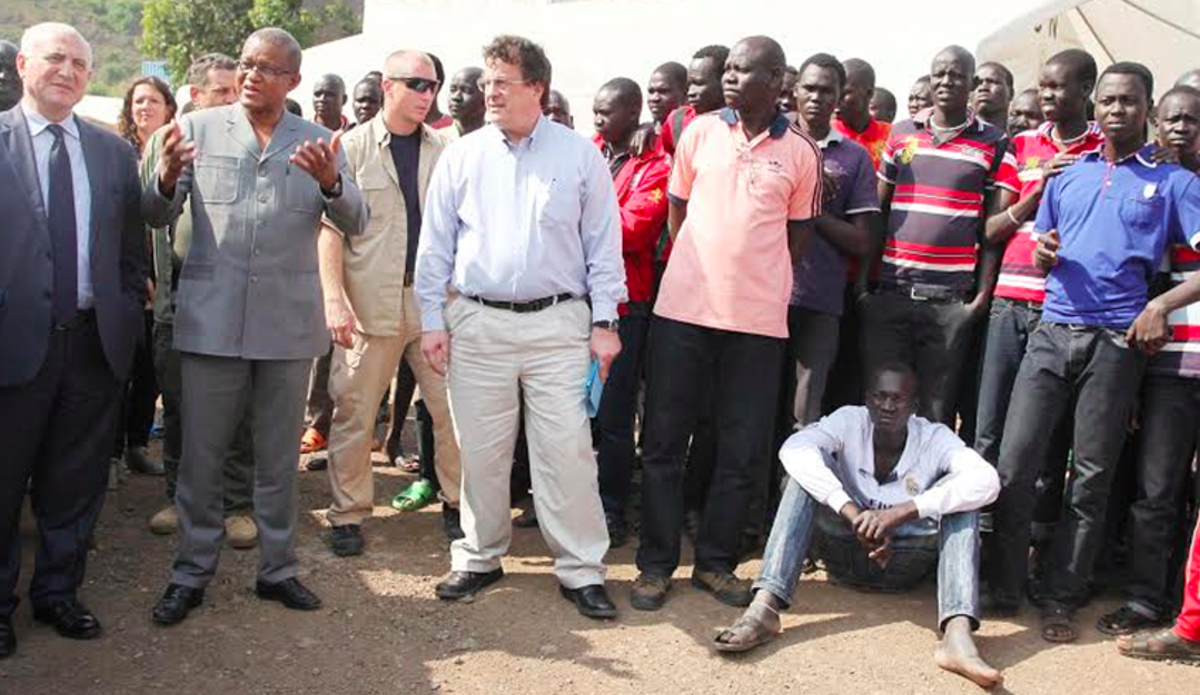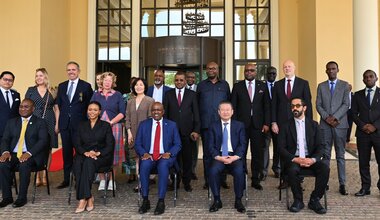The United Nations says ready to work with national and regional stakeholders for a lasting solution to the issue of South Sudanese combatants on D. R. Congo soil
Nairobi, 17 January 2017 – Said Djinnit, United Nations Special Envoy for the Great Lakes region, and Maman Sidikou, Special Representative of the Secretary-General for the Democratic Republic of the Congo (DRC), had multiple consultations in Kinshasa and Goma on 12 January 2017 to address the issue concerning the presence of South Sudanese combatants in eastern DRC. These combatants are elements of the Sudan People’s Liberation Movement/Army-In Opposition (SPLM/A-IO) who fled the fighting in South Sudan to find refuge in neighbouring Democratic Republic of the Congo. They were disarmed and are presently accommodated by the United Nations Stabilization Mission in the DRC (MONUSCO) in the towns of Goma and Dungu. Last week’s consultations are the first in a series of actions to include a joint tour in the region involving UN officials, national and regional stakeholders aimed at finding durable solutions for the 631 SPLM/A-IO elements.
In a meeting with United Nations officials, the South Sudanese combatants urged their interlocutors to support the implementation of the peace agreement brokered by the Intergovernmental Authority on Development (IGAD) in August 2015 between the South Sudanese government and the rebel forces. Less than one year later, the implementation of the peace agreement was compromised when fighting resumed between Juba authorities and the SPLM/A-IO rebels.
Special Envoy Djinnit and Special Representative Sidikou offered to assist in finding a lasting solution to the issue, together with the concerned countries and regional bodies such as the African Union (AU) and IGAD.
As a step forward, the DRC Government and the UN officials have agreed to establish a joint technical committee tasked to propose options for the relocation of the SPLM/A-IO ex-combatants. Meanwhile, the UN officials will continue their engagement with national and regional stakeholders in Juba (South Sudan) and Addis Ababa (Ethiopia) in early February.
 UN
UN




